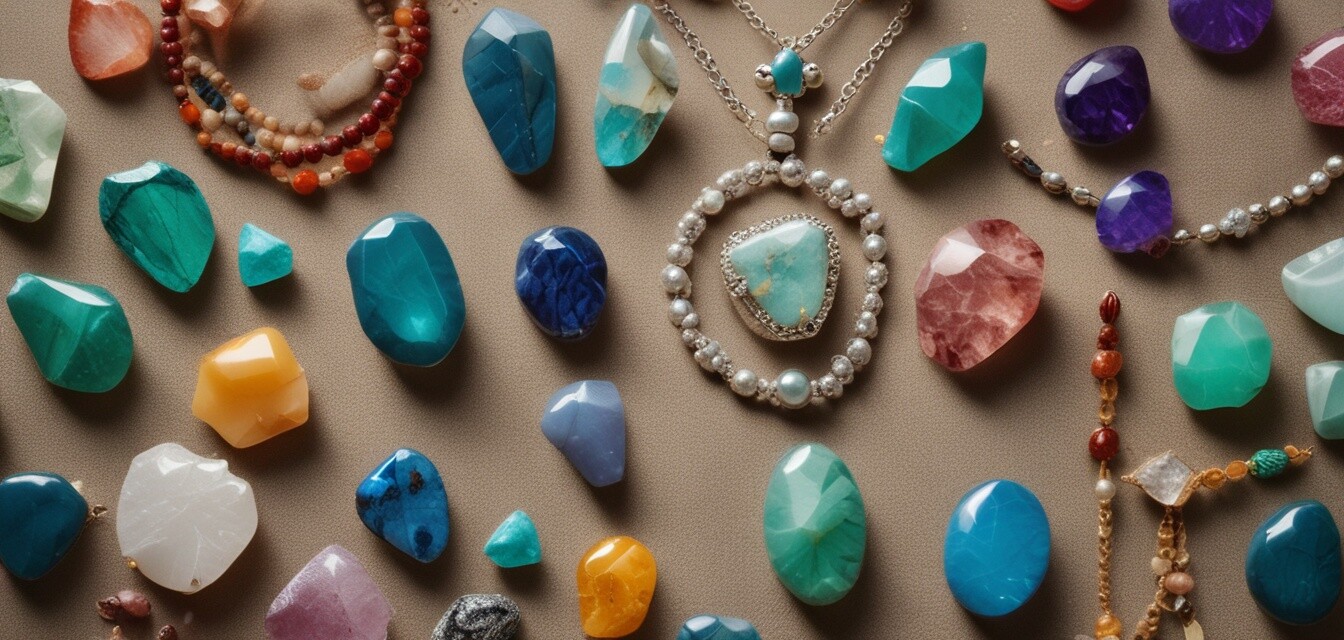
How to Spot Ethical Brands: A Consumer's Guide
Key Takeaways
- Understand what makes a brand genuinely ethical.
- Look for transparency in ingredient sourcing and production practices.
- Beware of greenwashing tactics that mislead consumers.
- Consider certifications that indicate ethical practices.
- Support artisans and brands that prioritize sustainability.
With the rise of sustainable practices in the jewelry industry, many consumers are eager to make ethical purchasing decisions. However, the challenge lies in distinguishing between brands that genuinely uphold ethical values and those that engage in greenwashing. In this guide, we will delve into the essentials of spotting ethical brands in the jewelry sector, focusing primarily on gemstones used in jewelry making.
Understanding ethical brands
Ethical brands prioritize responsible sourcing, production transparency, and fair treatment of workers. When exploring ethical gemstone jewelry, it's important to familiarize yourself with key considerations that set these brands apart:
| Criteria | Ethical Practices | Red Flags |
|---|---|---|
| Transparency | Open about sourcing and production | Lack of information on sourcing |
| Sourcing | Utilizes recycled or ethically mined materials | Claims of "ethical" without certification |
| Labor Practices | Fair wages and working conditions | Reports of exploitation or unfair practices |
| Environmental Impact | Minimal environmental footprint | Destructive mining practices |
Identifying reliable certifications
Certifications are critical in verifying a brand's authenticity. Here are some well-recognized certifications in the ethical jewelry space:
- Fair Trade Certified: Ensures fair wages and conditions for artisans.
- Responsible Jewelry Council (RJC): Promotes responsible sourcing from mine to market.
- Sustainable Jewelry Coalition: Focuses on environmental sustainability.
- Gemological Institute of America (GIA): Known for its grading and ethical assessments.
Avoiding greenwashing
Greenwashing is when a brand portrays itself as more environmentally friendly than it actually is. Here are some tips to avoid falling victim to these tactics:
- Research: Investigate the brand's claims about sustainability and ethics.
- Seek Evidence: Look for independent verifications or customer reviews.
- Stay Skeptical: Be cautious of vague or overly sentimental messaging.
- Compare: Similar brands should offer comparable ethical practices.
Engaging with artisans and supporting sustainable practices
When consumers choose to support brands that emphasize artisan craftsmanship and sustainability, they contribute to a broader movement towards ethical consumption. Consider looking into various buying options:
| Buying Option | Benefits | Considerations |
|---|---|---|
| Direct from Artisans | Direct support to makers, unique pieces | Availability may be limited |
| Ethical Marketplace | Variety of brands, verified sellers | May have higher prices |
| Local Craft Fairs | Support local economies, personal interaction | Less selection than online |
| Online Retailers | Convenience, access to various brands | Need to research brands |
Conclusion
Spotting ethical brands in the jewelry industry requires diligence, awareness, and a commitment to making responsible purchasing decisions. By focusing on transparency, seeking reliable certifications, and engaging directly with artisans, consumers can drive positive change within the market. Stay informed and become a part of the vibrant movement towards ethical gemstone jewelry.
Tips for beginners
- Start with small purchases from ethical brands to test quality.
- Follow industry news to stay updated on trends and changes.
- Join forums or groups focused on ethical jewelry.
- Share your finds and experiences with others to raise awareness.
Pros
- Supports sustainable practices
- Promotes fair labor standards
- Encourages creativity and unique designs
Cons
- May come at a higher price point
- Limited availability in some areas
- Harder to identify truly ethical brands
For more insights and updates, visit our News and Trends section and explore our collection of Ethical Stone Earrings to discover beautiful pieces that make a difference.